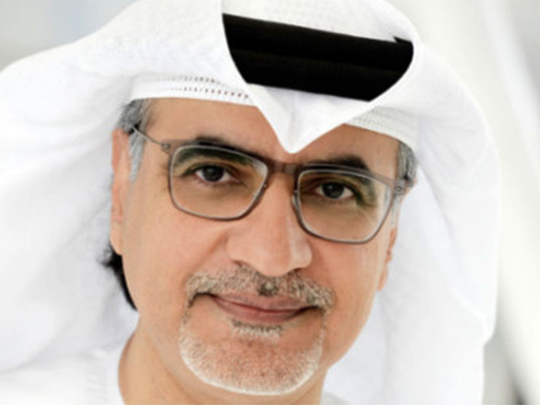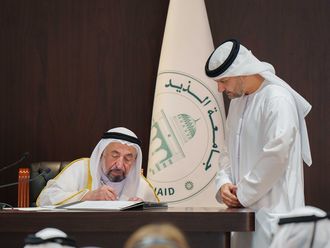
Dubai: The new long-term visa for students in the UAE will have a positive social impact, besides making the country a more attractive destination for foreign students and universities, a senior official said.
In an interview, Mohammad Abdullah, managing director of Dubai International Academic City (DIAC), said the five-year residence visa for students will bring an added sense of security and stability to youth and their families. There will also be a 10-year residence visa for exceptional students.
Currently, expat university students have a visa sponsored by their university as long as they are enrolled. Once they graduate or leave university, their visa becomes void. This means they have to seek another sponsor and visa to stay in the country, continue their education or land a job.
On May 6, the UAE Cabinet announced a new visa system, which includes the long-term visa for students. Details of the new system will be announced in time, after which, it is understood, the new long-term visas will start being offered. At the moment, it is not known exactly when the roll-out will take place.
Major advantage
Abdullah, who is also the managing director of Dubai Knowledge Park and president of the Dubai Institute of Design and Innovation, outlined the benefits of the new visa system, including the social aspect.
“The major advantage is that it gives that secure and stable environment for students, they don’t need to worry. Earlier, there were situations where, even though the students’ parents were here, the students were obliged to find a work visa because graduates had become independent. But now, this visa system will give the stability to the family and will provide relief to a lot of people who have been here for years. Their children went to schools and universities here; and this new system will positively affect them socially as well,” Abdullah said.
Many students graduate from the university in four years, and the new visa system will give such graduates, it appears, an extra year to live in the UAE.
“Your son or daughter has been living with you, they did all their school years here and then went to university here — it doesn’t make sense for them [to leave right after graduation]. They should get that opportunity to stay in the country, to secure [employment or further education] and stay with the family.”
Abdullah pointed out that the details and formalities of the new system are yet to be announced. However, in general, he expects there will be a significant positive impact on the education and employment sectors.
Using the example of DIAC, home to around 27 local and international universities with some 26,000 students, Abdullah said besides students from UAE-based expat families, there are many young people who come to the UAE specifically to study here.
“And the visa is definitely a major concern, so to speak. Once you create this sort of new visa system, it removes that concern people might have,” he added. And where students go, it is only rational to expect universities to follow.
Attractive destination
Abdullah said the new visa system “is a very important initiative to attract foreign investment; we’re talking here about educational institutions that are looking at UAE as a destination. And once you become a major destination, with all these flexibilities [of the new visa system] and facilities, this will definitely enhance the quality that you’re offering — the quality of the faculty, the students and institutions”.
What’s more, Abdullah added, the new system will retain talent — successful young graduates — within the UAE.
“These skilled students are your future workforce. Once you allow that long-term stay, it will definitely encourage them to stay on. They are the group, the entrepreneurship segment, that you want to develop. And Dubai and the UAE, in the last few years, have worked very hard to encourage entrepreneurship, with all the initiatives coming from the government.”












